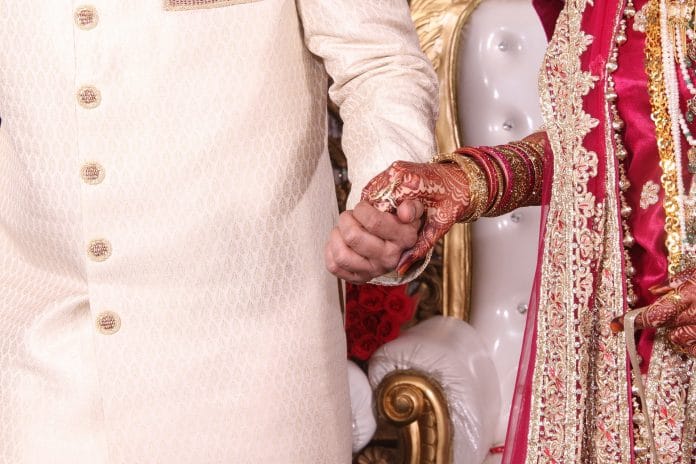Our culture, in its pristine glory, celebrates the exercise of choice by a woman in matters of selection of partner as well as sexual autonomy.
On Monday, the Delhi High Court shall begin the final hearing in the arguments of the state in the marital rape case titled Rit Foundation v. Union of India (WP © no. 284/2015) and two other connected matters. In an extremely important battle, the challenge, in this case, is against Exception 2 to Section 375 of the Indian Penal Code, whereby a woman’s husband is granted legal immunity qua prosecution for rape.
In the heated public conversation about rape since the tragic Jyoti Singh incident, what we have completely missed is that 99 per cent (National Family Health and Welfare Survey) of all sexual violence occurs not outside, but within the supposedly ‘sacred’ institution of marriage.
As a practicing Hindu, I unequivocally feel that marriage ought to be treated as a sacrament. However, in the course of my extensive reading of all extant Hindu smritis and other sources of Hindu law, I was unable to find any reference to immunity being granted to husbands for an act of rape committed against the spouse. Our culture, in its pristine glory, celebrates the exercise of choice by a woman in matters of selecting a partner, as well as sexual autonomy.
It is unnerving to see India continue with this colonial-era law on our statute books, even though it has been dumped across the developed and the developing world.
There are certain seemingly valid concerns raised by various ‘men’s rights’ groups. The Delhi High Court will also hear one of them. However, a closer examination of their contentions would reveal them to be utterly specious.
Advocates for continued criminalisation have contended two things: (a) that the law would be susceptible to misuse and would ruin the lives of the men accused of having raped their wives, irrespective of whether or not the allegations stand the scrutiny of the court and (b) there can be no real evidence as to whether a woman has been raped or not by her husband as the sexual intercourse takes place on the marital bed, and there can be no CCTV cameras installed in the bedroom.
Let us examine both the contentions one by one:
(a) It is a sad reality of our judicial and criminal justice system that the process more often than not is harsher than the punishment. This is, of course, a systemic issue, and requires a systemic intervention by the legislature or by the Supreme Court of India at the insistence of public-spirited individuals and/or organisations.
However, almost all laws, including those penalising financial misdemeanour, are susceptible to misuse and prosecution on flimsy grounds, and can ruin lives.
For example, it would be justified for the Talwars to claim that their lives and careers have been irrevocably ruined if at all they are finally acquitted of the crime of murdering their daughter Aarushi. However, I have not heard anybody contend that just because people are falsely accused of murder or financial crimes, the aforementioned ought to be decriminalised. We can’t throw the baby out with the bathwater.
It is quite unfortunate that we use possible ‘misuse’ as an excuse to continue to decriminalise something that is obviously a crime and also something that revolts the conscience of most right-thinking people.
(b) The second reason is also quite regressive and does not stand the scrutiny of a reasoned examination. As on date, marital rape is already actionable under the Prevention of Domestic Violence Act. In case of a live-in partner, or let us assume a couple that has been engaged to be married but is not married, the same evidentiary requirements as in any other case of rape are applicable, although the constraints for the investigating authorities are similar if not identical.
It is dangerous and untenable to assume that married Indian women are somehow more prone to vendetta and uttering falsehood under oath. Ours is a culture where women ‘rishikas’ have composed Vedic hymns, and there have been women prophets.
It would be a shame to accept the argument that Indian women have a greater propensity to deceit than women of other nationalities. We must examine and even adopt the evidentiary best practices of jurisdictions, especially those that follow Common Law, where marital rape has already been criminalised.
Irrespective of what the ‘social justice warriors’ who operate with a political agenda against the ruling dispensation say or do, the incumbent government has an excellent record on gender issues, as the case of triple talaq shows. Until now, the official stand in the affidavit filed before the Delhi High Court is that a similar issue is pending before the Supreme Court (titled Independent Thought v. Union of India). But now, the Supreme Court has stated that the issue of whether marital rape should or should not be decriminalised for adult women is not a component of the ‘lis’ that was pending before it.
It is now up to the Union to take a progressive stand on this issue in the Delhi High Court.
Raghav Awasthi is an advocate and petitioner for criminalising marital rape.







Aarushi case comparison for misuse is irrelevant. There is an irrefutable fact that death has happened in Aarushi’s case. So Prima facia there is a case made out, while all women centric laws are filed based on unverifiable verbal “allegations” of the woman.
Also, why should husbands be deprived of protection under sexual assaults by wives who are constantly demanding sex.
malesexcapades.blogspot.in gives an idea of how men too face similar problems
Religion is irrelevant here, it is a pure human right issue. She is a human, she has her rights that cannot be violated against, period. She is not a property of her husband or anybody for that matter. Let not use primitive tribal philosophies to debate what rights she can enjoy.